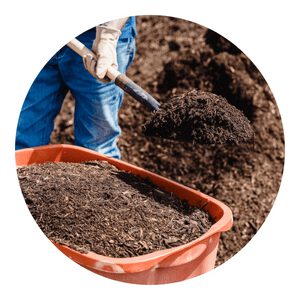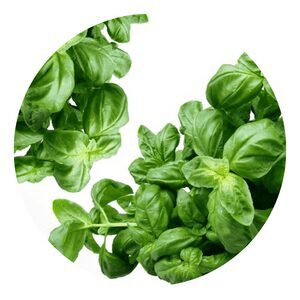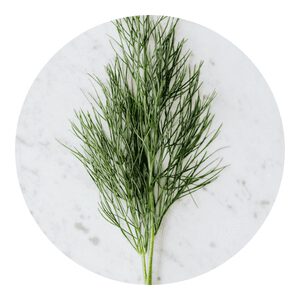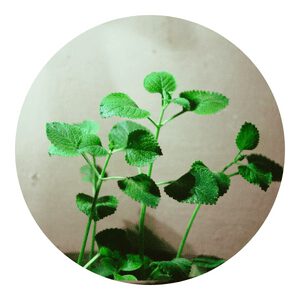The Health Benefits Of Sage
Sage is a perennial herb of the mint family that has been used for centuries as a medicinal and culinary remedy.
Used both internally and externally, sage is an incredibly powerful plant with a broad range of health benefits.
From its anti-inflammatory properties to its ability to support cognitive function, the use of sage in traditional medicine continues to be relevant in modern times.

Sage Menu
Sage and its use in traditional medicine
Sage has been used for centuries as a traditional herbal remedy to treat a variety of ailments.
This fragrant, gray-green herb is native to the Mediterranean and has since spread across the globe.
Within traditional medicine, sage has been used in various forms such as teas and extracts. Its medicinal properties have earned it the nickname “the healer” in some cultures.
The health benefits of sage are vast, ranging from treating digestive issues to aiding with mental clarity and relaxation.
It contains a unique compound known as rosmarinic acid which has anti-inflammatory properties that can help reduce swelling in the body, allowing for better digestion and circulation.
Sage also contains antioxidants that provide protection against cell damage caused by free radicals, potentially slowing down ageing effects on skin cells.
Antioxidant properties of sage
Sage is an herb that has long been used for its culinary and medicinal applications, but what many people may not know is that it also has powerful antioxidant properties.
Antioxidants are substances found in plants that help protect against damage caused by oxidative stress, which can lead to illnesses such as cancer and heart disease.
The active compounds in sage are known as phenolic acids and flavonoids, which have strong antioxidant properties.
Studies have shown that these compounds are able to scavenge harmful free radicals from the body, thus protecting cells from oxidative damage.
Sage has also been found to possess anti-inflammatory properties due to its high levels of polyphenols, making it effective at relieving pain associated with conditions like arthritis or muscle strain.
Definition of antioxidants and their role in the body
Antioxidants are substances that can help protect the body from damage caused by free radicals.
Free radicals are molecules that can cause a number of diseases if they accumulate in the body, but antioxidants can reduce their levels.
Antioxidants have been shown to have multiple health benefits, including reducing inflammation and promoting healthy skin, heart and immune system function.
The definition of an antioxidant is a compound which helps neutralize free radicals in the body, preventing them from causing damage to cells and tissues.
The most common types of antioxidants include vitamins A, C and E; carotenoids such as beta-carotene; flavonoids like quercetin; minerals such as selenium and zinc; polyphenols like catechins; and resveratrol.
Evidence of sage's high antioxidant content
Regular consumption of sage can provide numerous health benefits, as it is filled with antioxidants.
Sage has been used for centuries as a culinary and medicinal herb.
However, recent research has revealed that sage contains high levels of antioxidants, which may help protect the body from damage caused by free radicals.
The active components of sage responsible for its antioxidant power are the phenolic compounds, including rosmarinic acid.
These compounds have been found to scavenge free radicals in laboratory studies.
Free radicals are highly unstable molecules formed during metabolic processes and they can cause cellular damage if left unchecked.
But by consuming high amounts of antioxidants like those found in sage, these damaging effects can be prevented or minimized.
In addition to this, research suggests that rosmarinic acid may also possess anti-inflammatory and antimicrobial properties, making it an ideal choice for maintaining good health and wellbeing overall.
Grow sage in your garden and eat it with glee The health benefits one will be sure to see It’s actually an herb that’s good for the mind Combined with water, it's one of a kind Its anti-inflammatory properties have much clout Helping to reduce joint pain and muscle ache throughout Antioxidants in this herb are found aplenty Destroying bacteria and providing superb immunity Sage can also reduce stress and exhaustion at night Enabling sleep to restore our spirit and might
Chappy The Gardener
Potential benefits of sage's antioxidant properties
Sage is an ancient herbal remedy that has been used for centuries, both medicinally and as a culinary herb.
Its many uses have given rise to modern scientific evidence of its antioxidant properties, which can be beneficial for reducing inflammation and improving overall health.
Sage contains compounds such as rosmarinic acid and carnosic acid, which are believed to help protect the body from damage caused by free radicals.
In addition to antioxidant protection, sage may offer other benefits including improved digestion, mental clarity, anti-inflammatory effects and even anti-cancer properties.
The herb has been used in traditional Chinese medicine since at least 4th century BC and is known to improve digestion by stimulating appetite regulation.
The active compounds found in sage are thought to reduce inflammation while increasing blood flow and aiding the digestive system’s ability to absorb nutrients more effectively.
Sage and cognitive function
Sage is a popular culinary herb, but it has also been used for centuries in Eastern and Western medicine for its health-promoting properties.
In the last few years, research has suggested that sage may have potential benefits to cognitive function.
The active components in sage are thought to work by boosting levels of acetylcholine in the brain.
Acetylcholine is a neurotransmitter associated with memory and learning, so higher levels may lead to improved cognition and alertness.
Studies have found that people who inhaled or ingested sage experienced better recall than those who did not take the herb before tests.
Furthermore, Sage extract has been shown to improve mental performance on tasks such as word recall and working memory tests.
Traditional use of sage for memory and cognitive function
The traditional use of sage has been a part of many cultures for centuries.
Sage is a herb that has been used to promote memory and cognitive function in both the Western world and Eastern Asia.
In modern times, the medicinal properties of sage have gained more attention as studies have suggested that it may provide health benefits such as improving mental acuity and alertness.
For generations, sage has been used to help support healthy cognitive function due to its potential ability to improve learning and memory recall.
It is believed that the volatile oils present in sage act on receptors in the brain affecting neurotransmitters like acetylcholine, which helps with memory formation.
Furthermore, many anecdotal reports suggest that consuming sage can enhance concentration, providing further evidence of its possible benefits on cognitive performance.
Recent scientific research supports the idea that there are beneficial properties associated with consuming sage extract or tea.
Studies on the effects of sage on cognitive function in humans
Recent studies have revealed that sage, a common herb found in many kitchen spice racks, may have positive effects on cognitive function in humans.
Sage is an aromatic plant traditionally used as a seasoning and has been clinically studied for its potential health benefits.
A growing body of research suggests that the active compounds of sage hold potential to improve memory and cognition, which can be especially beneficial for older adults or those with existing neurological conditions such as dementia or Alzheimer’s disease.
Sage contains antioxidant compounds like rosmarinic acid which helps protect the brain from oxidative damage caused by free radicals.
Studies also indicate that consuming extracts from sage may help enhance working memory and alertness while reducing feelings of anxiety and fatigue.
Potential mechanisms by which sage may improve cognitive function
Sage has been used for centuries as an herb for its culinary and medicinal benefits.
But recent research is now suggesting that sage may also have a positive effect on cognitive function.
In a study published in the journal Neuropsychopharmacology, it was found that sage extract improved working memory and cognitive performance in healthy adults.
The exact mechanisms by which sage produces these effects remain unclear but there are several potential theories.
It is believed that compounds such as rosmarinic acid, thujone, and carnosic acid are responsible for the herb’s cognitive-enhancing effects.
These compounds can act on acetylcholine receptors in the brain to improve communication between neurons and increase neural plasticity – effectively improving cognitive performance.
Sage and menopause symptoms
The fourth part of an investigative series on the health benefits of sage, this article will look at how effective it can be in treating symptoms associated with menopause.
Sage is a popular herb known for its medicinal properties, and has been used for centuries to treat a variety of medical ailments.
This article will explore how sage can help reduce some of the most common symptoms associated with menopause such as hot flashes, night sweats, mood swings and insomnia.
Studies have found that regular consumption of sage extract can help reduce the severity and duration of hot flashes in postmenopausal women by up to 70%.
It does so by modulating hormones which produce estrogen-like activity when ingested.
In addition to this useful effect for menopausal women, it also helps regulate blood sugar levels and cholesterol levels – both important factors in overall health.
Menopause and common symptoms
Menopause is a natural process of aging for women, and it typically begins during the late 40s or early 50s.
This marks the end of a woman’s reproductive years and is marked by a decrease in estrogen levels.
During menopause, the body adapts to these hormonal changes, which can cause physical and psychological symptoms.
Common symptoms of menopause include hot flashes, night sweats, headaches, fatigue, vaginal dryness and mood swings.
While many women experience these effects differently from one another due to individual hormones or lifestyles, there are treatments available to help manage them.
In addition to hormone therapy options such as estrogen replacement therapy (ERT) or selective estrogen receptor modulators (SERMs), there are also alternative therapies like herbal medicine that may be beneficial in managing menopausal symptoms.
Evidence of sage's effectiveness in reducing menopause symptoms
Sage has been used as an herbal remedy for centuries to treat a variety of ailments.
Today, many women are turning to sage to reduce the symptoms associated with menopause, such as hot flashes and night sweats.
Recent research is beginning to show that there may indeed be some scientific evidence of the effectiveness of sage in helping to relieve these troublesome symptoms.
In one study, it was found that women who consumed daily supplements containing sage experienced fewer hot flashes and less severe night sweats than those given a placebo pill.
The results were even more dramatic in women whose menopausal symptoms had been particularly extreme prior to taking the supplement.
Additionally, participants reported improved sleep quality and reduced irritability following their use of the herbal remedy.
Potential mechanisms
Sage, an herb found throughout Europe and the Mediterranean, has long been used to treat a variety of ailments.
From sore throats to digestive distress, sage is often thought to have health-promoting properties.
Recently, attention has turned to its potential role in relieving menopause symptoms.
While there have not yet been definitive studies into this area, researchers have begun looking into possible mechanisms by which sage might provide relief for menopausal women.
One potential way sage may help with menopause is its ability to balance hormones.
Studies suggest that it contains phytoestrogens that can act as substitute estrogens in the body during times when estrogen levels are low.
In addition, research indicates that compounds in sage called monoterpenoids possess anti-inflammatory properties which can help alleviate some of the physical discomfort associated with menopause such as hot flashes and night sweats.
Sage and other potential health benefits
Sage is well-known for its traditional use in aromatherapy and as a culinary herb, but it also has many other potential health benefits.
Research has shown that sage can help to improve digestion, reduce inflammation and even control blood sugar levels.
In addition to its respiratory benefits, sage may be beneficial in treating digestive issues such as bloating and constipation.
Studies show that the volatile oils found in sage leaves help to improve digestion by stimulating the secretion of digestive juices.
Furthermore, some studies suggest that consuming sage can reduce inflammation within the body which can aid with digestion and absorption of nutrients.
Finally, research suggests that consuming sage regularly over a period of time can help to regulate blood sugar levels due to its ability to slow down carbohydrate absorption into the bloodstream.
In conclusion, sage has a long history of being used for medicinal purposes due to its numerous health benefits.
It can help reduce inflammation, improve brain function and reduce symptoms associated with menopause.
Sage can also help relieve digestive issues, boost immunity and even reduce cholesterol levels.
In addition to its many medical benefits, sage is easy to find as it grows in many regions around the world and is widely available in stores.
Therefore, incorporating this herb into your diet can be beneficial for both your physical and mental wellbeing.
Click To Grow
Helps Us Grow – Share If You Like
















